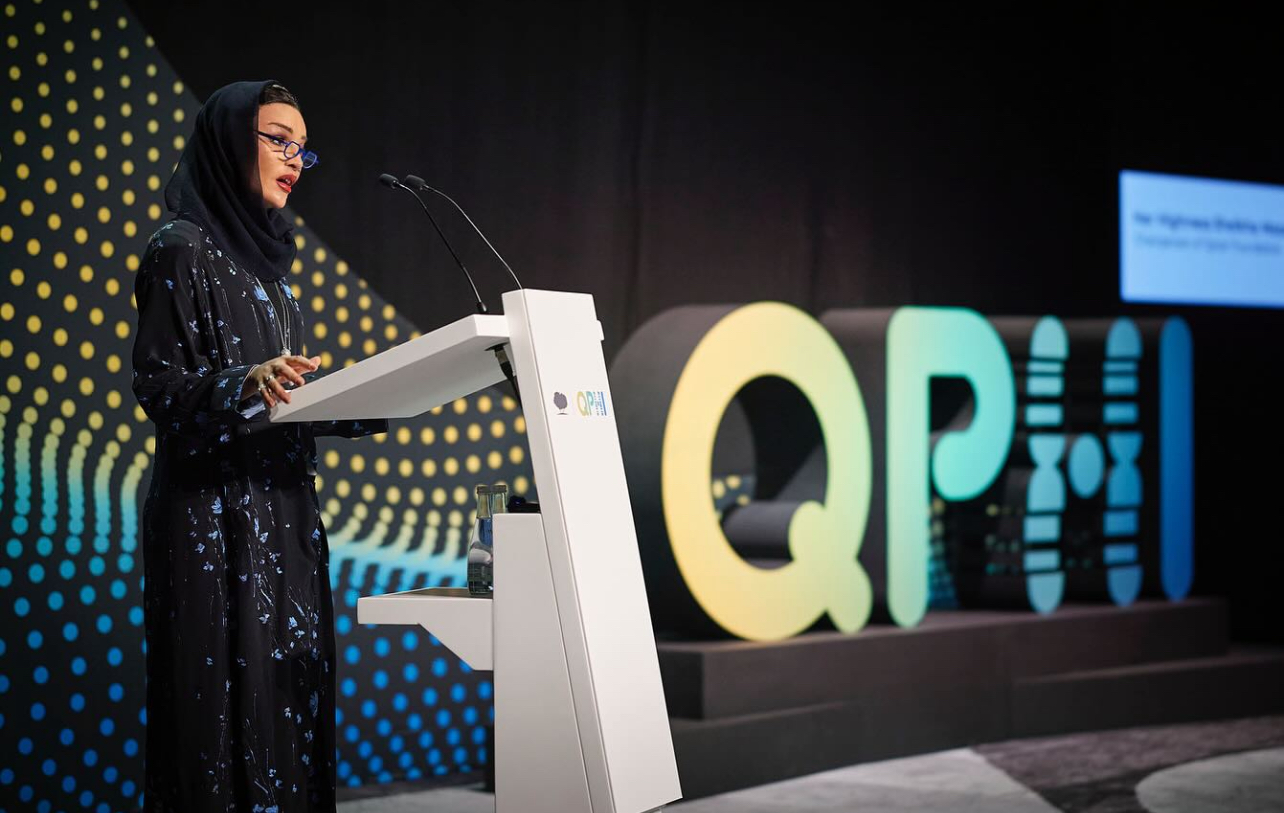At the launch, Sheikha Moza expressed her immense pride in her country pioneering the first population-based genomic programme in the region.
Qatar’s Sheikha Moza bint Nasser has formally launched the Qatar Precision Health Institute (QPHI).
On Tuesday, Qatar Foundation’s (QF) chairperson delivered an inaugural speech at the launch of the institute at the Doha National Convention Centre.
“I am proud that Qatar was the first country in the region to establish a population-based genome programme, and has played a pioneering role in ensuring that Arab genomes are included in global genomic databases,” the Qatari royal remarked.
The newly launched QPHI builds on the decades-long research of the Qatar Biobank and Qatar Genome Programme. The institute strives to bolster the Qatari health sector through the implementation of precision medicine.
So far, at least 40,000 whole genomes have been sequenced by the institute with the contribution of 30,570 Qataris out of 47,493 Arab and long-term Qatar resident participants.
These data sets will be pivotal to genetic mapping of specific diseases, such as COVID-19, autism, diabetes, cancer and heart disease as well as establishing diagnostic protocols to identify patients in disease areas.
“In the past, a one-size-fits-all approach was commonly adopted in treating cancer, diabetes, Alzheimer’s and other diseases. But research shows that patients’ genetic make-up, environment, and lifestyle factors, can affect the intensity of their condition and the way they respond to various treatments. Understanding this allows us to create new, precise preventative methods,” Sheikha Moza added.
Constitutional commitment
The QPHI is partnering with QF, the Hamad Medical Corporation, Sidra Medicine and the Qatari Ministry of Public Health (MoPH).
Qatar’s Public Health Minister, Hanan Mohamed Al-Kuwari, was also in attendance at the launch.
“The launch of the Qatar Precision Health Institute, initiated by Her Highness Sheikha Moza bint Nasser, demonstrates Qatar’s vision in harnessing the power of science and innovation to improve the health of our population,” the MoPH official said.
The Qatari Permanent Constitution also enshrined a pledge to uphold the nation’s public health.
“The State shall foster public health; provide means of prevention from diseases and epidemics and their cure in accordance with the law,” the Constitution reads.
Meanwhile at the launch, Victor J. Dzau, Chairperson of the International Scientific Advisory Committee, added that the QPHI’s formal establishment is a “pivotal moment” in seeing the constitution’s pledge to fruition by actively “shifting our focus from merely combating diseases to directly and proactively improving the wellbeing of the people of Qatar through precision health.”
Other attendees at Tuesday’s launch included Sheikha Hind bint Hamad Al Thani, QF’s vice chairperson and CEO.
The long term goal of the QPHI include collecting high quality biological samples from 60,000 Qataris and long-term Qatar residents who have lived in Qatar for at least 15 years to promote medical research in Qatar and worldwide.
“By seamlessly integrating cutting-edge research with clinical applications, QPHI will equip healthcare providers with the means to provide personalised treatment in Qatar and elevate the standard of care while cementing Qatar’s position as a frontrunner in precision medicine on the global stage,” said Said Ismail, who is the QPHI’s Acting President.







